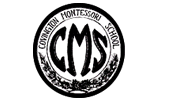
Why Montessori?
Choosing the Montessori path for a child involves considering a unique educational approach that emphasizes independent learning, self-directed activity, and a focus on holistic development.
Montessori is:
Child-Centered Learning:
Montessori education is designed to cater to the individual needs and interests of each child. The curriculum is flexible, allowing students to progress at their own pace, fostering a love for learning.
Holistic Development: Montessori education focuses on the development of the whole child—cognitive, social, emotional, and physical aspects are all considered important. The curriculum often includes activities that promote creativity, critical thinking, and problem-solving skills.
Individualized Learning: The Montessori method recognizes that children have different learning styles and strengths. Teachers observe each child and tailor their guidance to match the child's unique needs and abilities.
Mixed Age Groups: Montessori classrooms typically have mixed-age groups, allowing younger children to learn from older peers and older children to reinforce their learning by helping younger ones. This fosters a sense of community and collaboration.
Hands-On Learning: Montessori emphasizes hands-on, experiential learning. Children use specially designed materials that are self-correcting, encouraging exploration and discovery. This approach helps in the development of motor skills and concrete understanding of abstract concepts.
Freedom and Responsibility: Montessori classrooms provide children with a degree of freedom within a structured environment. This freedom is accompanied by a sense of responsibility, teaching children to make choices, solve problems, and take ownership of their learning.
Respect for the Child: Montessori educators believe in respecting each child as an individual with unique potential. The approach encourages a positive, nurturing relationship between teachers and students, promoting a sense of security and confidence.
Preparation for Real-World Skills: Montessori education often incorporates practical life activities that teach children essential life skills, such as pouring, cleaning, and cooking. This helps in the development of independence and self-sufficiency.
Focus on Peace Education: Montessori education often includes an emphasis on peace education, teaching children conflict resolution, empathy, and a sense of global citizenship.

